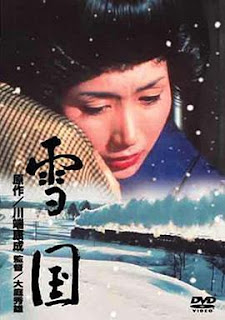78. Chhiáⁿ lí chhōa góa khì Tokyo
Yoko ê hûn-su ká-ná mā boeh chùn ah. Yi ê bīn ká-ná sī hûi-hiám ê piáu-chêng peh kòe-lâi. Shimamura khòaⁿ khì pa̍t-ūi, chhiò-chhiò kóng:
"Hoān-sè góa kín túiⁿ Tokyo khah hó neh."
"Góa mā boeh khì Tokyo."
"Tang-sî?"
"Tang-sî lóng ē-sái."
"Nā án-ne, góa túiⁿ ê sî chhōa lí khì, hó bô?"
"Hó, chhiáⁿ lí chhōa góa khì." Kóng sī khin-sang, m̄-koh kháu-khì téng-chin. Shimamura tio̍h chi̍t-kiaⁿ.
"Tio̍h ài lín chhù ê lâng tông-ì."
"Chhù ê lâng? Góa kan-ta chi̍t-ê sió-tī tī thih-lō͘ chò-kang. Tāi-chì góa ka-tī koat-tēng tō ē-sái."
"Tokyo ū tá-ūi thang khì?"
"Bô."
"Lí ū hām yi chham-siâng bô?"
"Sī kóng Koma-Chan hioh? Góa chheh Koma-Chan, m̄ kā yi kóng."
Án-ne kóng liáu, ká-ná khah tháu-khùi ah, yi ba̍k-chiu sió-khóa tâm-tâm, gia̍h thâu khòaⁿ i. Shimamura kám-siū tio̍h chi̍t-chióng kî-koài ê khip-ín-le̍k, m̄-chai sáⁿ iân-kò͘, soah tian-tò tiám to̍h tùi Komako ê jia̍t-lia̍t ài-chêng. Chhōa chi̍t-ē m̄-chai sin-sè ê ko͘-niû ká-ná su-phun án-ne túiⁿ khì Tokyo, hoān-sè sī tùi Komako ê chi̍t-chióng chhim-chhim ê siā-chōe, mā sī tùi i ka-tī ê chhú-hoa̍t.
"Án-ne tòe chi̍t-ê cha-po͘-lâng cháu, lí kám bē kiaⁿ?"
"Boeh kiaⁿ sáⁿ?"
"Khì Tokyo boeh tòa tah, boeh chhòng sáⁿ, lí lóng bô tiāⁿ-tio̍h, án-ne kám bē hûi-hiám?"
"Cha-bó͘-lâng boeh chhòng sáⁿ lóng ē-sái." Yoko kā siaⁿ-bóe súi-súi giâ koân, lia̍h i kim-kim khòaⁿ:
"Lí iōng góa chò lú-tiong, hó bô?"
"Sáⁿ? Chò lú-tiong?"
"Góa mā bô kah-ì chò lú-tiong."
"Chìn-chêng tī Tokyo ê sî, lí chò sáⁿ?"
"Chò hō͘-sū."
"Tī pēⁿ-īⁿ a̍h ha̍k-hāu?"
"M̄-sī, kan-ta sī siūⁿ boeh chò."
--
78. 請你 chhōa 我去 Tokyo
Yoko ê 魂軀 ká-ná mā 欲顫 ah. 她 ê 面 ká-ná 是危險 ê 表情 peh 過來. Shimamura 看去別位, 笑笑講:
"凡勢我緊 túiⁿ Tokyo 較好 neh."
"我 mā 欲去 Tokyo."
"當時?"
"當時攏會使."
"若 án-ne, 我 túiⁿ ê 時 chhōa 你去, 好無?"
"好, 請你 chhōa 我去." 講是輕鬆, 毋過口氣頂真. Shimamura 著一驚.
"著愛恁厝 ê 人同意."
"厝 ê 人? 我干焦一个小弟 tī 鐵路做工. 代誌我家治決定 tō 會使."
"Tokyo 有 tá 位通去?"
"無."
"你有和她參詳無?"
"是講 Koma-Chan hioh? 我慼 Koma-Chan, 毋 kā 她講."
Án-ne 講了, ká-ná 較敨氣 ah, 她目睭小可澹澹, 攑頭看伊. Shimamura 感受著一種奇怪 ê 吸引力, 毋知啥緣故, 煞顛倒點 to̍h 對 Komako ê 熱烈愛情. Chhōa 一个毋知身世 ê 姑娘 ká-ná 私奔 án-ne túiⁿ 去 Tokyo, 凡勢是對 Komako ê 一種深深 ê 謝罪, mā 是對伊家治 ê 處罰.
"Án-ne 綴一个查埔人走, 你敢袂驚?"
"欲驚啥?"
"去 Tokyo 欲蹛 tah, 欲創啥, 你攏無定著, án-ne 敢袂危險?"
"查某人欲創啥攏會使." Yoko kā 聲尾媠媠夯懸, 掠伊金金看:
"你用我做女中, 好無?"
"啥? 做女中?"
"我 mā 無佮意做女中."
"進前 tī Tokyo ê 時, 你做啥?"
"做護士."
"Tī 病院 a̍h 學校?"
"毋是, 干焦是想欲做."
--
78.
It seemed that the girl's whole body must soon be trembling. Shimamura looked away, fearful that a dangerous light would be breaking out on the too-earnest face.
He laughed. "I think I'd best go back to Tokyo soon."
"I'm going to Tokyo myself."
"When?"
"It doesn't matter."
"Shall I see you to Tokyo when I go back?"
"Please do." The seriousness was intense, and at the same time her tone suggested that the matter was after all trivial. Shimamura was startled.
"If it will be all right with your family."
"The brother who works on the railroad is all the family I have. I can decide for myself."
"Have you made arrangements in Tokyo?"
"No."
"Have you talked to Komako, then?"
"To Komako? I don't like Komako. I haven't talked to her."
She looked up at him with moist eyes-a sign perhaps that her defenses were breaking down--and he found in them an uncanny sort of beauty. But at that moment his affection for Komako welled up violently. To run off to Tokyo, as if eloping, with a nondescript woman would somehow be in the nature of an intense apology to Komako, and a penance for Shimamura himself.
"It doesn't frighten you to go off alone with a man?"
"Why should it?"
"It doesn't seem dangerous to go to Tokyo without at least deciding where you will stay and what you might want to do?"
"A woman by herself can always get by." There was a delicious lilt in her speech. Her eyes were fixed on his as she spoke again: "You won't hire me as a maid?"
"Really, now. Hire you as a maid?"
"But I don't want to be a maid."
"What were you in Tokyo before?"
"A nurse."
"You were in a hospital? Or in nursing school?"
"I just thought I'd like to be a nurse."
--


No comments:
Post a Comment